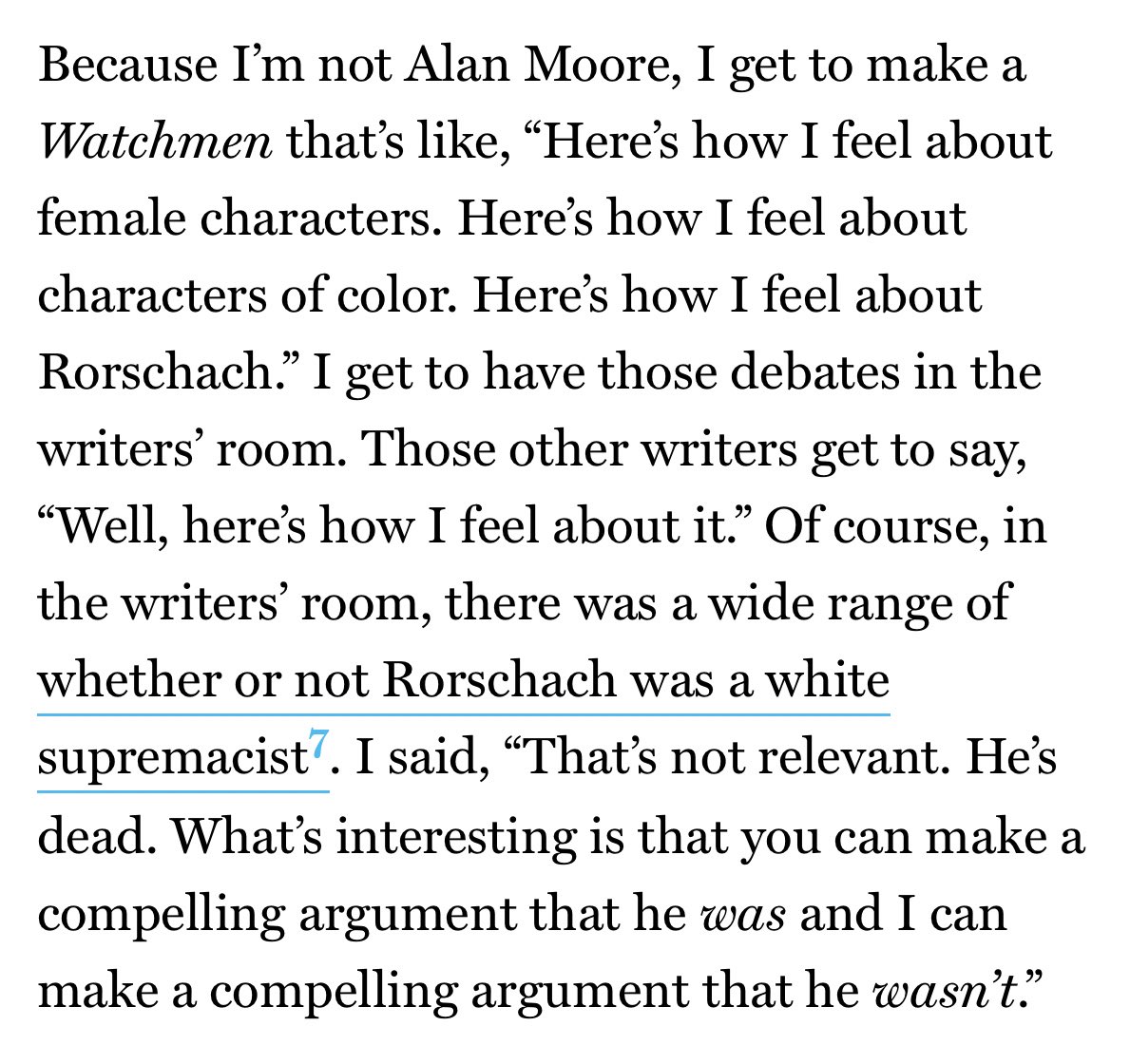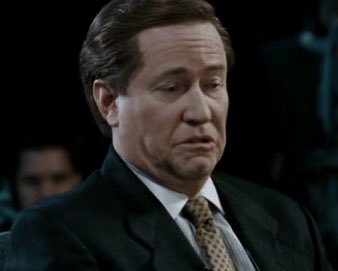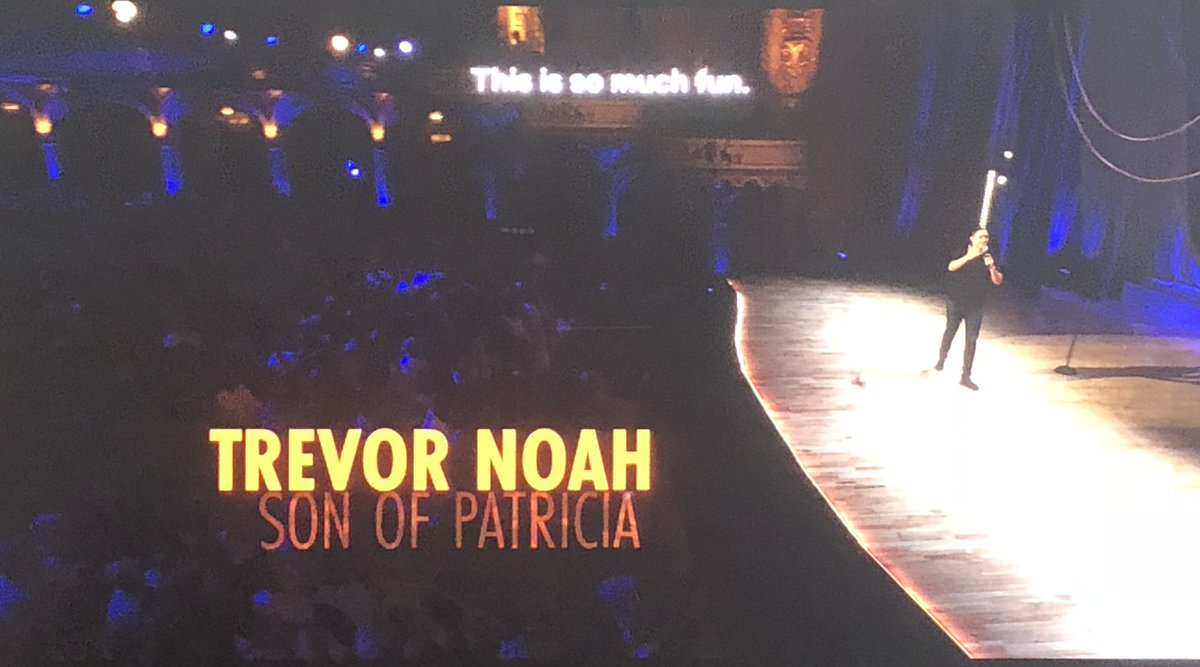Which is about half the length of the television series starting this weekend.
It’s also notably one of the points at which the film is not especially slavish to the text, and free to elaborate a little.
It is something that is the film’s own.
From the outset, you have very stylish “slowmo, badass” action scenes that exist at odds with the tone of the source material.
Snyder’s camera worships them. They aren’t strange and pathetic. They are badass.
It is an odd dissonance within a film that bends over backwards to be textually faithful.
Rorschach’s inner monologue kinda works on the page. But despite valiant efforts from Jackie Earl Haley, it doesn’t work in film.
But Snyder keeps pretty much all of those passages verbatim.
It is the very definition of insanity, and kinda amazing for that. It would have been very easy to make a more generic, more forgettable in-name-only adaptation.
I am very much awed that this is a thing that actually exists. I’m astounded.
Again, jamming it in so directly is a quixotic exercise. And I kinda love that.
It includes a number of very obvious needle-drops, from “The Sound of Silence” to “Boogeyman” relating to the comedian.
It’s heavy handed, but most superhero stories are. They’re pop art.
Moore’s dialogue is stylised - it’s true of “V for Vendetta”, and “Watchmen” as well.
It’s easier to disguise that on the page than it is delivered by an actor. And I admire the film for leaning into it.
This silliness carries over to the film in a variety of interesting ways. And I think it’s intentional.
That extended sequence is better than anything in the Marvel Cinematic Universe. And makes up for a lot of the film’s flaws.
So the film’s approach really pays off with it.
There’s a lot of monologuing, but little conversing. (The story’s structure isolates him from the rest of the cast, by necessity.)
It’s as stylised as the film around it, and it works for me.
I really like the film’s decision to dress him like Schumacher-style superhero, as part of the film’s subtle shifting of its heroes’ meta history from page to screen.
He even has nipples on his costume.
The movie’s fidelity to the source material means that it has a very episodic structure.
You could break it down neatly into about six episodes of a miniseries, and it might even work better.
It feels like an older style of film making.
Maybe it’s because of that same stately pace, the weighty investment in a hyperreal riff on a pulpy all-American genre.
But I admire its ambitions and its scale, and its desire to blend big ideas with pure pulp.
soundcloud.com/the250/112-onc…
Wilson always felt like a seventies character actor out of time. It may be why he works so well in the “Conjuring” films.
He’s awkward, insecure, dysfunctional. But a good guy.
Wilson captures all of that, beautifully.
Dreiberg is one of the two leads who has recognisably human psychology; relatable needs, wants, insecurity.
It’s a deeply, deeply uncomfortable watch.
[Patrick Wilson ass.gif]
Playing those creepy scenes to their creepy conclusion.
[Patrick Wilson O-face.gif]
The “Watchmen” sex scene somehow makes sex unsexy. Which is fair, given the trappings of the genre with which it is playing.
[Archie... discharges.gif]
There’s something to be said for how “Watchmen” foregrounds that sexualisation to emphasise the creepiness of it.
It should be noted that “Suckerpunch” has been read as a commentary on - rather than example of - the male gaze.
I am not sure I agree. But I tend to think that discomfort is the point with a lot of Snyder’s film.
forbes.com/sites/scottmen…
It’s a shame it took so long for the rest of the world to realise how fantastic Gugino is.
The women of “Watchmen” remain disappointingly thinly drawn, despite Gugino’s superb performance.
engagedscholarship.csuohio.edu/cgi/viewconten…
Laurie would be a tough role for even the best performer. Akerman sadly seems lost.))
It foregrounds Laurie, played by Jean Smart. And it comes from a writers’ room largely populated by women and people of colour.
vulture.com/2019/10/watchm…

However, also by 2009, it understood that this unity wasn’t permanent. This shades Veidt’s plan, providing a different context than 1986.
























